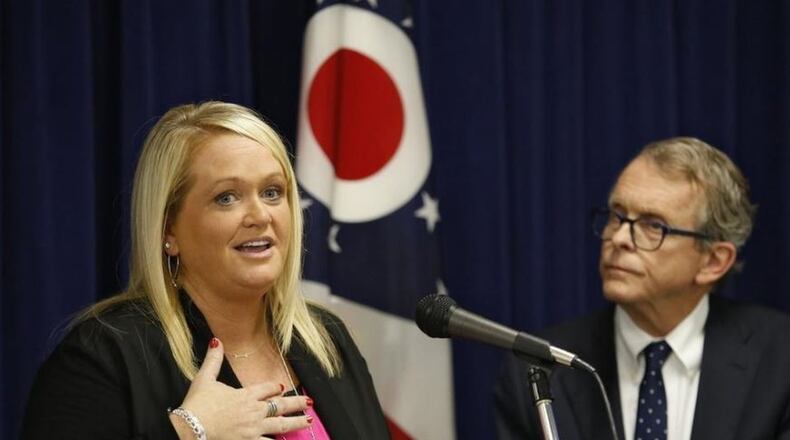RELATED: Opioid crisis straining children’s services in Ohio, Butler County
Local child welfare officials acknowledged the strain as drug problems continue to surge through their communities.
“Most of the kids we have in foster care are there because of the opiate epidemic,” said Bill Morrison, executive director of Butler County Job and Family Services.
And even though the county has been able to reduce the number of kids in foster care by 20 percent in recent years, Morrison said the agency is still feeling the pinch of having to compete with other counties for fewer available foster homes.
“When we do need them, it’s more difficult to find one,” he said. About 45 percent of Butler County placements are in county-run foster homes and the number of those homes has remained steady, Morrison said. But the other 55 percent are contracted out to private foster care agencies.
READ MORE: Area children’s hospital treats two children a week for opiate overdoses
“We’re competing for that pot of network foster homes,” he said. “It’s become more and more difficult.”
With the shortage of foster care homes locally and across the state, agencies are having to place children further from their homes, and some are even placed out of state.
Morrison said Hamilton County has seen one of largest increases in foster care needs in the state which means its placements are taking up many of the available homes in counties to the north.
‘It’s an emergency’
As of this month, Ohio has about 15,000 children in the custody of children’s services agencies. That’s up 3,000 from seven years ago, when the opioid epidemic began, DeWine said.
There are currently 7,200 licensed foster families.
Children are also staying in the foster care system longer, officials say.
RELATED: Heroin has created a ‘lost generation’
About 19 percent of children are staying in foster care longer because of the amount of time it takes for parents to successfully recover, according to the Public Children’s Services Association of Ohio.
“This is a tragedy and it’s an emergency,” said DeWine, who called on anyone who has ever thought about fostering to consider getting licensed.
Those wishing to become a licensed foster parent must pass both an FBI and Ohio Bureau of Criminal Investigation background check. DeWine Thursday said his office will expedite BCI checks for those who request them.
He also announced a $1 million grant to be established out of the federal Victim’s of Crime Act fund, which his office administers. He said the money will be used for a pilot program in about 10 counties to help promote more kinship care placements where children are placed with a relative, neighbor or family friend.
Morrison said kinship placements are always preferable to a foster home.
RELATED: What Ohio governor candidates plan to do about heroin crisis
Political overtones
Thursday’s press conference had political overtones: DeWine, a Republican who is running for governor, has already signaled he plans to make the opioid crisis a central piece in his campaign.
POLITICS: Who has the most money in Ohio’s governor race right now?
Both DeWine and Dayton Mayor Nan Whaley, who is seeking the Democratic nomination for governor, have filed lawsuits against pharmaceutical companies, alleging they are responsible for getting people hooked. Other candidates, too, have addressed the crisis as part of their campaigns.
There are four Democrats and four Republicans who have announced their intentions to run for governor.
DeWine acknowledged the foster care home shortage has nothing to do with his job as attorney general but said he wanted to use his office’s bully pulpit to draw attention to the crisis.
HOW TO BECOME A FOSTER PARENT
The Ohio Attorney General's Office has launched a website to help recruit foster families at www.ohioattorneygeneral.gov/FosterFamilies.
Those requesting an expedited background check from the Bureau of Criminal Investigation should email fostercheck@ohioattorneygeneral.gov.
About the Author
